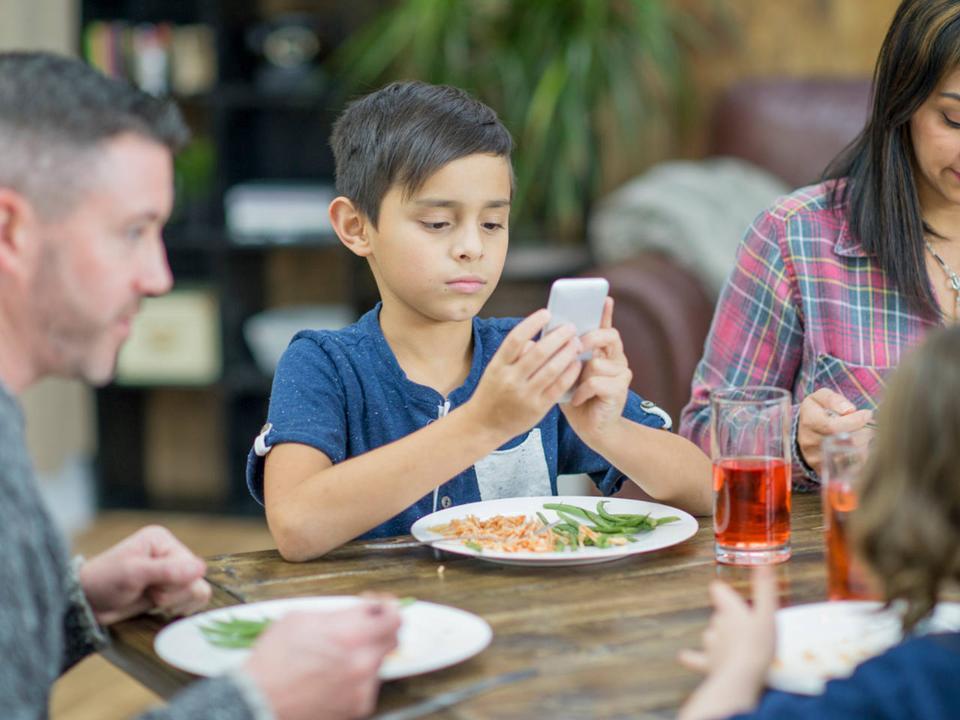Most parents fear they are setting a bad example in front of their children when it comes to technology use, and they are right. Sadly, it is often our children who are the first to let us know we’re spending too much time on our phones. Even worse is when they stop warning us because they have given up. In this article, I will show you how to identify if you have bad technological habits (before your kids do!) and give you some helpful tips on how to set a good example.
How parents’ use and abuse of screens affects their children
Parents worry about their childrens’ addiction to screens, and often try to educate their children in the proper use of screens. But the irony is that they themselves can be the biggest abusers of technology. Every day I see parents who ignore their children while on their phones. The children often look despondent, not knowing how to compete with the phone to get their parents’ attention.
Today’s parents are the first generations to have technology interwoven into their lives. So it’s not easy for them to know what the correct use of devices really looks like without having any role models before them.

What is clear is that parents’ relationships with their screens has a big effect on their relationship with their children, as well as on their child’s psychological development. Neuroscience research tells us that the first three years of children’s lives are critical because that is when the neural connections are created that will be the basis for the development of the child’s emotional, social and behavioral capacities.

But the development of these neural networks is highly conditioned to the stimulation that the child receives from the environment, especially from the parents. Thus, a relationship in which parents spend time with their children, are attentive to their needs and there is a good level of communication, stimulates child development. In a relationship where parents are distant, pay attention to other stimuli (like phones), we see the reverse – it negatively affects the child’s emotional and behavioral development.
In a study published in the journal Child Development, researchers wanted to see if excessive use of technological devices by parents could be the basis of childhood behavioral disorders such as hyperactivity, attention deficit disorder (ADD), etc. The researchers asked parents to indicate the number of times that the mobile, computer or tablet interrupted the time they spent with their children. What they found is that lack of attention, even for a few moments, could trigger the beginning of a behavior disorder in children. That is, the more parents were distractracted by technology, the more behavioral problems the children had, including violent behavior and tantrums. In addition, these children had lower self-esteem and more relationship difficulties with others.
in another interesting investigation, carried out in fast food restaurants by the Department of Pediatrics of the Boston Medical Center, researchers found that 73% of parents used their mobile phones and the majority did not pay attention to their children during the entire meal. Again, not surprisingly, the more distracted the parents were, the worse the children behaved.

3 Signs your child feels displaced by your phone use
- Does your child get extremely angry when you ignore them? When the child wants to say something or share something and the parents are looking at the phone instead of paying attention, it is absolutely normal for the child to feel displaced and have a tantrum or great anger.
- Does your child yell when they ask you something? When the child speaks in a normal tone and is heard the first time, he does not need to shout it. If the child decides to raise his voice from ella to see if he listens to him that way, he is only checking if you pay more attention to him.
- Has your child stopped trying to get your attention? This is not a good sign. If the child has understood that what you see on your mobile phone is a higher priority than them, they will give up and lose interest in spending time with you.
Educating by example
Children learn by imitation. It is the first way that children learn human behaviors. In the words of Albert Einstein, “Educating by example is not a way to educate, it is the only way.” And, in that sense, our parents are our first and most important educators. Children internalize the behaviors of adults, and will come to consider them normal, even if they are not. That’s why it is essential that parents are aware and alert about what they project to their children.
7 Tips for using tech in a positive way in front of your kids
This can lead us to make mistakes and even many times it is not necessary or convenient. Harvard Business Review explains that not responding to an email for at least 24 hours can be a safe pause, and usually works out in your favor by giving you a clearer perspective and by not making it look like you are available around the clock. A great skill to teach your kids!
If you want to impose schedules on your children, you have to be the first to impose them on yourself. To do it well and consistently, use a screen time tool like Qustodio to help.
I have read about many kids who say, “When my parents’ phone rings, I cease to exist for them.” Turning off rings and notifications signals to your kids that they are the priority.
If your phone is in another room, in your pocket or bag as much as possible. You’ll be much less likely to grab for. Out of site of mind. It’s as simple as that!
Do activities with them that involve movement. There is no better way to combat screen addiction and sedentary lifestyle than physical activity. Even better, try to take your kids outdoors. And if they see you enjoying yourself, they will be much more likely to enjoy the activities too.
Taking your laptop, tablet or mobile to bed makes it difficult to fall asleep. A study published in 2015 in the scientific journal Philosophical Transactions of the Royal Society B, revealed that the electric light (blue light) from these devices alters our biological clock (the cycle between sleep and wakefulness), body temperature or hormonal regulation. In short, your body thinks it’s daytime, hindering sleep.
It is so tempting to take a moment for yourself and use screens to distract your children. But it’s a big mistake because it so easily becomes a habit. Movie night is fine, but grab toys or coloring books, not screens, to help your child entertain themselves when you are busy.
Final Thought
Throughout history we have been social creatures, and this has been to our advantage. We also spent the majority of our lives outdoors. These parts are key to our children’s social and physical development. We are the first generation of parents to be thrown into a digital world, accelerated even more by the pandemic, but it is our responsibility to not let ourselves be replaced by screens!



